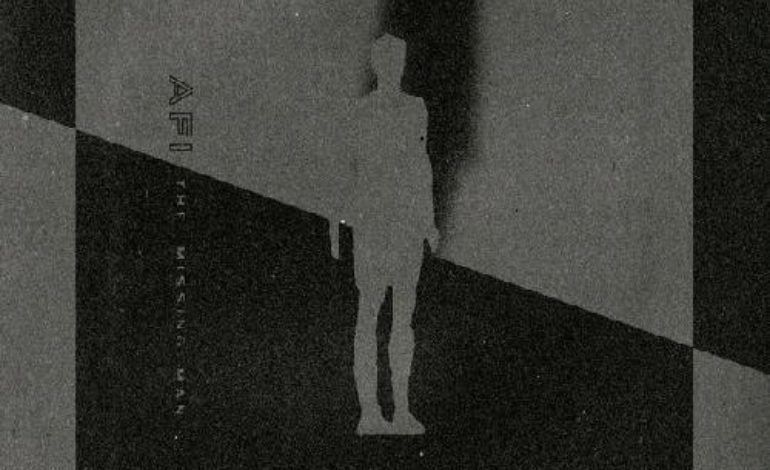

Solid songs, clever misdirection ploy
AFI have had a long, impressive career spanning multiple eras. They began as a hardcore punk band in the 1990s, before embracing their emo sides in the 2000s, to much critical and commercial success. This decade they’ve scaled back their workload, but the things they did release have been wildly different. The band went to a more electronic sound on 2013’s Burials, but their most recent full-length, The Blood Album, showed flashes of their old selves. Recently, they caused all their fans a minor heart attack by releasing a photo featuring iconic lead singer Davey Havok missing, but it turns out that was just a teaser for an EP fittingly titled The Missing Man. The five-song EP will tide over fans before a new record comes out.
One thing that can be noticed right off the bat about the EP is that the five tracks are so dramatically different from each other that it’s almost as if the band is purposely trying to eliminate any sort of speculation of what direction their new music will go. Instead, the band, consisting of Havok, drummer Adam Carson, bassist Hunter Burgan and guitarist Jade Puget, appears to be channeling all their different past releases. Puget actually produced the album himself as well.
The album’s first track is ‘Trash Bat,” and its speedy punk beat, distorted guitars and AFI’s signature gang vocals channel a mix of 2003’s Sing The Sorrow and 2009’s Crash Love (especially the latter). After that comes “Break Angels,” which begins as an ultra-polished, pop-oriented track à la Burials before launching into a massive chorus that sounds right at home on 2006’s DECEMBERUNDERGROUND. “Back Into The Sun” is a more mass-appealing song that could fit on any 2000s AFI album depending on how they choose to mix the instruments. Another punk song, “Get Dark,” is up fourth, but it also channels elements of garage rock and new wave that were explored on The Blood Album. It also contains the EP’s only guitar solo. The EP’s final track is the title track, which differs from the other four in that it’s slower and more ominous, with an acoustic guitar line and melodic violin over slow-marching snare rolls.
Seeing as AFI successfully manages to change their sound on every album they make, it’s a clever choice to try and throw listeners off their scent by having their new music harken back to their previous ones. That will make their future sound that much more exciting to hear.
